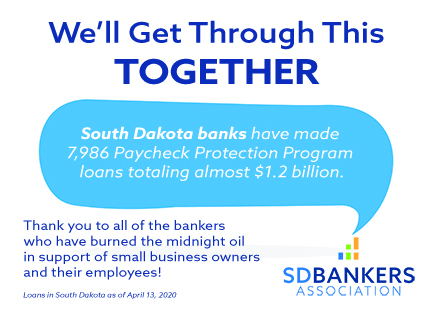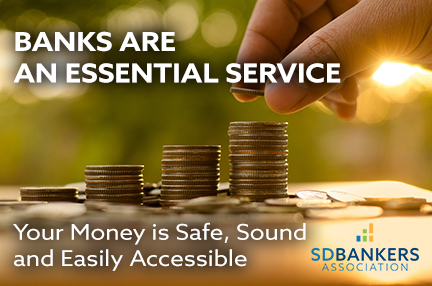Reliabank, which is celebrating 100 years of doing business in 2020, was recognized by the South Dakota State Historical Society for its efforts in preserving state history. The bank was one of two organizations and four individuals to receive a 2020 Governor’s Award for History.
Reliabank, under the direction of David and Jan Johnson, has been involved in several historic preservation projects in the Watertown area, including the First State Bank of Hazel, now known as Reliabank of Hazel, which was placed on the National Register of Historic Places in 1997. The bank pledged $250,000 to Friends of Goss Opera House Main Hall, to be renamed Reliabank Hall, and the bank has facilitated loans for a revolving loan program for Historic South Dakota.

 South Dakota banks have made 7,986 Paycheck Protection Program loans totaling almost $1.2 billion. Thank you to all of the bankers who have burned the midnight oil in support of small business owners and their employees!
South Dakota banks have made 7,986 Paycheck Protection Program loans totaling almost $1.2 billion. Thank you to all of the bankers who have burned the midnight oil in support of small business owners and their employees! To all bank employees throughout South Dakota
To all bank employees throughout South Dakota COVID-19 is causing many concerns with consumers, but access to your money shouldn’t be one of them. Banks are considered an essential service, so they will continue to operate and you will have uninterrupted access to your money. Here are the top five things to know about your money and South Dakota banks:
COVID-19 is causing many concerns with consumers, but access to your money shouldn’t be one of them. Banks are considered an essential service, so they will continue to operate and you will have uninterrupted access to your money. Here are the top five things to know about your money and South Dakota banks: